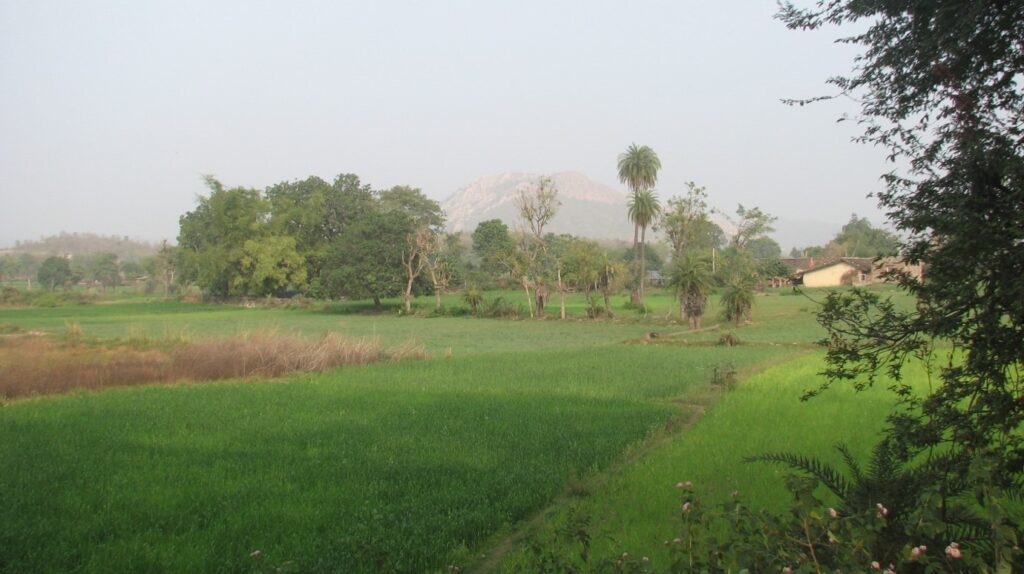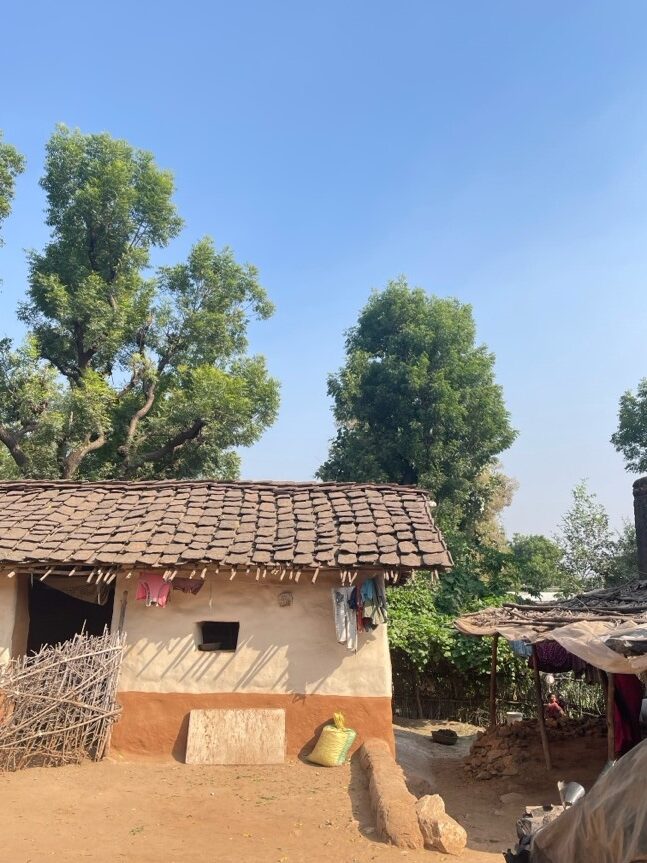To me her name does not matter as much as her story does, because it is quintessential story that represents the struggle in the lives of many Adivasi women of southern Rajasthan. In her early thirties now, she was the eldest of a large family of seven siblings, brought up in a tiny hamlet. Her father owned barely two bighas of land, some of which was located deep inside the forest. The family grew corn, wheat and chana but that was hardly enough to meet their food requirements. She helped her mother who worked hard from four in the morning, fetching head-loads of fuel-wood, taking care of the goats and working in the fields apart from household chores. She studied till class five in the village school, but the family was too poor to continue her education thereafter. Her parents, like all other parents in the village, focused their attention on her marriage.
hardly enough to meet their food requirements. She helped her mother who worked hard from four in the morning, fetching head-loads of fuel-wood, taking care of the goats and working in the fields apart from household chores. She studied till class five in the village school, but the family was too poor to continue her education thereafter. Her parents, like all other parents in the village, focused their attention on her marriage.
At the age of sixteen she was married to a young man of a neighbouring village. She cried a lot because she did not want to marry at such a young age, but there was no way of going against her parents’ wishes. “The tradition in our village is that if a girl marries of her own choice then she is as good as forgotten by the family – her parents do not help if something goes wrong in the future, they do not take any responsibility,” she explains to me patiently. Anyway, she went according to the wishes of her parents.
In her case, something did indeed go terribly wrong with the marriage. Her husband, a khalasi had already been working on trucks for several years before their marriage, travelling as far as Mumbai and remaining away for eight or nine months at a stretch. A restless man, he neglected his young wife and two young children, refusing to provide for their expenses. Things became desperate at home and she started brewing and selling illicit liquor to make ends meet. She disliked the illegal work which brought drunkards to her door, but could not see a way out of her predicament.
Things took a turn for worse when she fell ill – her fever refused to subside over days and the diarrhoea made her weak. She came back to her parents as there was no one in her marital home to take care of her and her small daughters. The illness continued till she was reduced to a bag of bones, unable to sit up without help and her breath came in rasps. She felt death was staring her in the face.
It was sheer good fortune that a neighbour informed her of a new a primary health facility that had come up in the next village. Her brother took her to the clinic almost as a last ditch effort and she was admitted under care of the doctors and nurses. She tested HIV positive and was referred to Udaipur government hospital for further treatment. Her father was reluctant to send her to the faraway city and the family had little money to spare. Since her father refused to sign the required paperwork she signed the papers herself and went to Udaipur on her own risk. Thankfully, the treatment worked and slowly her health recovered.
Now, it was important for the entire family to undergo the test but her husband refused. Her brother literally caught hold of him and forced him to the clinic. She was devastated when both her children tested positive. “Who would take care of them? Who would marry them? What will happen?”
Then came the question of follow-up visits to Udaipur – she needed to go every month with her daughters for check up and getting medicines. With the help of clinic she found a hostel in Udaipur where she stayed with her children for a couple of months. This time her father objected severely. “I will kill your mother if you go back to the hostel,” he threatened. In spite of all the trouble he caused her, she does not blame her father. “He is not a bad man, but he was tired of the neighbours and the extended family taunting him for sending his daughter alone to the city.”
She had no idea what HIV was, except that it required her and her daughters to take medicines every single day of her life. Even today her parents don’t know about the nature of the disease and her father often tells her to stop taking medicines. “These doctors want people to take medicines all the time. Now you are okay. You should stop taking them,” he advises her, but she does not listen to his sage advice.
As she felt better, she started working at a health facility where she helps patients throughout the day. She explains the importance of taking medicines on time, of check-ups and good nutrition. Sometimes she acts as a translator for the doctors – translating the Vagdi dialect that the patients speak. She has also continued with her studies and has passed matriculation through the open school examination.
Her work has steadily grown- she is now responsible for communities in four Gram Panchayats. She supervises community volunteers in her work area, shares information with them and trains them in various aspects of community health. She makes home visits and educates pregnant or recently delivered women/ mothers of malnourished children/ TB patients, on the importance of proper medication, nutrition, and vaccination. She cautions them against going to ‘jhholachhap’ quacks. She also talks to young girls- “I conduct separate meetings for girls and tell them about menstrual hygiene and safe sex. They listen to me.”
Panchayats. She supervises community volunteers in her work area, shares information with them and trains them in various aspects of community health. She makes home visits and educates pregnant or recently delivered women/ mothers of malnourished children/ TB patients, on the importance of proper medication, nutrition, and vaccination. She cautions them against going to ‘jhholachhap’ quacks. She also talks to young girls- “I conduct separate meetings for girls and tell them about menstrual hygiene and safe sex. They listen to me.”
Every evening she walks back to her home that she has built with her own savings. It is a small single-roomed mud structure with a covered veranda and tin sheets for a roof, but she is rightly proud of it. The house stands a witness to her immense struggle as also her courage and resilience in the face of adversity. We sip the sweet tea that she has served and talk, while her younger child is busy playing with cousins in the courtyard.
Written by Paromita Goswami
